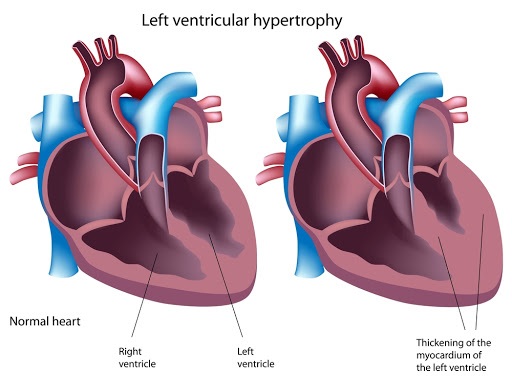Hypertrophic cardiomyopathy (HCM) is a disease that affects the heart muscle, causing muscle enlargement, or hypertrophy. At the Cleveland Family’s Miller Family Heart and Vascular Institute, we are treated with hypertrophic cardiomyopathy (HCM). Is of particular interest. Since 1978, we have treated hundreds of patients and the number is increasing every year.
The thickening of the heart muscle (myocardium) usually occurs in the septum. The septum is a wall of muscle that separates the left and right sides of the heart. Problems occur when the septum in the lower chambers of the heart, or the ventricle, thickens. The thickened septum can be the cause of a contraction that can block or reduce the flow of blood from the left ventricle to the aorta – a condition called “outflow tract obstruction”. The ventricle should be pumped hard to narrow or remove the obstruction. This type of hypertrophic cardiomyopathy can be called hypertrophic obstructive cardiomyopathy (HOCM).
Hypertrophic Cardiomyopathy Symptoms
Symptoms associated with the presence of ventricular tachycardia or heart failure include:
- Chest pain or pressure that usually occurs with exercise or physical activity, but also may occur with rest or after meals.
- Shortness of breath and fatigue, especially with exertion. These symptoms are more common in adults with hypertrophic cardiomyopathy and are most likely caused by a backup of pressure in the left atrium and lungs.
- Syncope (fainting or passing out) may affect HCM patients. Syncope with HCM may be caused by irregular heart rhythms, abnormal responses of the blood vessels during exercise, or no cause may be found.
- Palpitations (fluttering in the chest) due to abnormal heart rhythms (arrhythmias) such as atrial fibrillation or ventricular tachycardia. Atrial fibrillation occurs in about 25 percent of those with HCM, and increases the
- Risk for blood clots and heart failure.
Hypertrophic Cardiomyopathy Causes
Genetics
HCM or Hypertrophic Cardiomyopathy is usually an inherited condition. Defective genes can make your heart muscle thicker. If one of your parents is affected by HCM, you have a 50 percent chance of inheriting one of these genes. Inheriting genes does not mean you have symptomatic disease. HCM follows a major pattern of inheritance. However, symptoms do not always develop in people with defective genes.
Other
Other possible causes of HCM include aging and high blood pressure. In some cases, the cause of HCM is never identified.
Hypertrophic Cardiomyopathy Treatment
Treatment for HCM focuses on relieving symptoms and preventing complications, especially sudden cardiac death. The methods used depend on your:
- symptoms.
- Age.
- Activity level.
- Heart function.
Medications
Beta-blockers and calcium channel blockers relax your heart muscle. Relaxing helps it work better. If you have an irregular heart rhythm, your doctor may prescribe antioxidant medications such as amiodarone. May need to take antibiotics first.
Septal Myectomy
A septal myotomy is an open-heart surgery performed to remove part of your thickened septum. The septum is the wall of the heart muscle between your two lower heart chambers, which are your ventricles. This helps to improve the blood flow through your heart. Septal myctomy is done only when the medicines do not alleviate your symptoms.
Lifestyle Changes
If you have HCM, your doctor may recommend lifestyle changes to reduce your risk of complications. This includes:
- Eating a healthy diet.
- Keeping your weight at a healthy level.
- Doing low-intensity physical activities.
- Limiting alcohol intake, since alcohol can cause abnormal heart rhythms.
